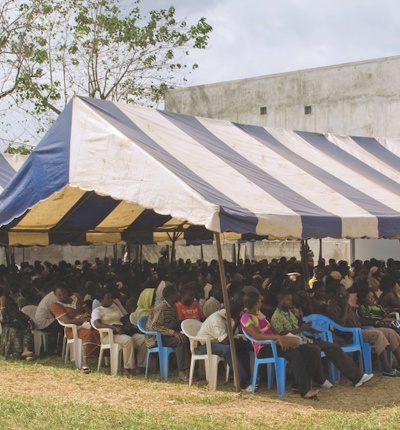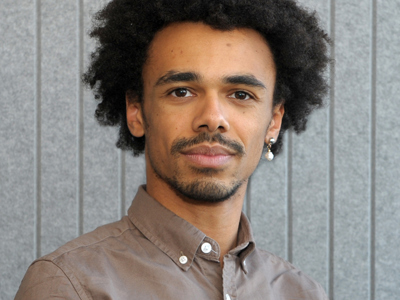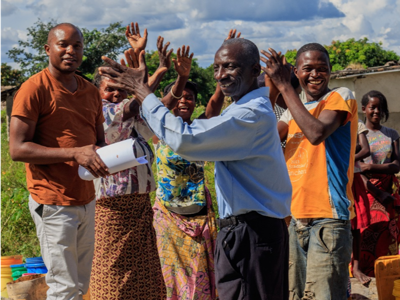
Verdict on Côte d’Ivoire's Inaction in Trafigura Case
Jonny Buckley and Kane Jackson consider a judgment by the African Court on Human and People’s Rights concerning failures by the State of Cote d’Ivoire following hazardous waste dumped by multinational corporation, Trafigura in 2006.
Posted on 02 November 2023
On 5 September 2023, the African Court on Human and People’s Rights found that the State of Côte d'Ivoire was in violation of international law for failing to protect the human rights of the victims in the Trafigura hazardous waste dump case. Notably the Court found that the State failed to protect fundamental rights enshrined in the African Charter, namely the right to life and right to a satisfactory environment
Background
In August 2006, the Ivorian State granted authority for a large ship to transport hazardous waste into the port of Côte d'Ivoire’s major urban centre, Abidjan. The ship was owned by multinational corporation Trafigura. The waste was unloaded from the ship and dumped at multiple open-air rubbish facilities in heavily populated areas across the city.
Following the dumping of the waste, around 100,000 residents sought medical treatment in local hospitals. Their symptoms ranged from headaches and skin rashes to severe respiratory problems.
Legal Proceedings
Criminal and civil proceedings were launched in several countries.
In 2007, the government of Côte d'Ivoire entered into a settlement agreement with Trafigura for approximately $195 million (the Ivorian settlement). The agreement granted impunity to Trafigura, resulting in two employees of the company being released from prison without charge and terminating future rights to prosecute those responsible. None of the victims was consulted on the Ivorian settlement.
Leigh Day represented some 31,000 Ivorians in civil claims against Trafigura who fell ill following the dumping of the hazardous waste. Those claims were settled out of court in 2009 without an admission of liability (the UK settlement).
While the UK settlement with Trafigura represented some measure of justice for Leigh Day’s clients, there was no scope to hold the State accountable for facilitating the arrival of hazardous waste into Côte d'Ivoire, and failing to take appropriate steps in the wake of the disaster.
Subsequently, the Ivorian Human Rights Movement (MIDH), the Ivorian Human Rights League (LIDHO), and the International Federation for Human Rights (FIDH), took the case to the African Court in 2016. The NGOs sought justice for more than 100,000 victims thought to have suffered as a result of the dumped waste. Among other things, the victims alleged that the State had violated their right to:
- an effective remedy for the breach of environmental rights concerning hazardous waste; and
- respect for life and physical and moral integrity of the person.
Of particular focus was the State’s commitment to the Bamako Convention (prohibiting the import of hazardous waste into Africa), and the Algiers Convention (ensuring effective conservation efforts by states).
Findings
The State put forward various objections to the Court hearing the case, but these were systematically dismissed by the Court.
The Court was willing to look broadly at the situation, stating that the Bamako and Algiers Conventions, when considered alongside the right to life, gave rise to enforceable human rights requiring redress when breached.
The resulting judgment stands out as a significant step forward for environmental human rights litigation in the region.
Despite the respondent to the claim being the State, the Court highlighted that companies need to be held responsible for their actions abroad. Interestingly, the Court noted that where corporate harm is concerned there is dual responsibility under international law. Not only do States have a duty to protect people from harm by foreign companies operating in their country, multinational corporations have an independent obligation to abide by international law, which extends to the identification and remediation of the consequences of their actions.
This comment should resonate with multinational companies operating in Africa, as the law continues to develop in ways that make it possible to hold them accountable for international human rights violations. Notably, in the Nevsun v Araya (2020) case, the Canadian Supreme Court ruled that a Canadian corporation could be held responsible for violations of customary international law. Similarly, courts in the UK have held that UK parent companies can be held liable for the actions of their overseas subsidiaries in some of Leigh Day’s landmark group actions such as Vedanta v Lungowe (2019) and Okpabi v Royal Dutch Shell (2021).
With reference to Côte d’Ivoire, the Court found that the State breached its duties by allowing Trafigura to unload hazardous waste and subsequently failing to address the resulting health effects on victims. The Court made clear that there was “no argument […] that the dumping of the waste violated the right to life”, regardless of the level of harm to individuals.
Finally, the Court found that the State had failed to provide an effective remedy in its administration of the national proceedings. The Court pointedly condemned the “regime of impunity” perpetuated by the Ivorian settlement as well as highlighting that a “large number of victims were not taken into account and thus did not receive compensation”.
What Next
In its judgment the Court ordered:
- The establishment of a compensation scheme from the Ivorian settlement and State funds;
- An independent inquiry to establish the true criminal and civil liability of the entities involved; and
- Legislative and regulatory improvements preventing future harm to the environment and human life resulting from toxic and hazardous waste.
Given Côte d'Ivoire’s recent withdrawal from the African Convention, implementation of the judgment seems unlikely; nevertheless, the judgment still serves as a benchmark for the international standards expected from States and multinational corporations where they are responsible for hazardous materials. In turn, the decision can be used by lawyers and activists across Africa to question whether States are providing adequate protections from potential corporate harm.
Leigh Day
Leigh Day is committed to seeking justice for our clients who have suffered due to the harmful impact of corporate-controlled hazardous materials and chemicals. We are currently acting for clients in a number of claims arising from harms caused in countries that are signatories to the African Charter, including oil pollution claims against Shell in the Niger Delta and lead poisoning claims against Anglo American South Africa in Kabwe, Zambia. We hope this judgment will encourage States to promote safer and more responsible corporate behaviour.

Jonny Buckley
Jonny Buckley is a senior associate solicitor in the international department.



